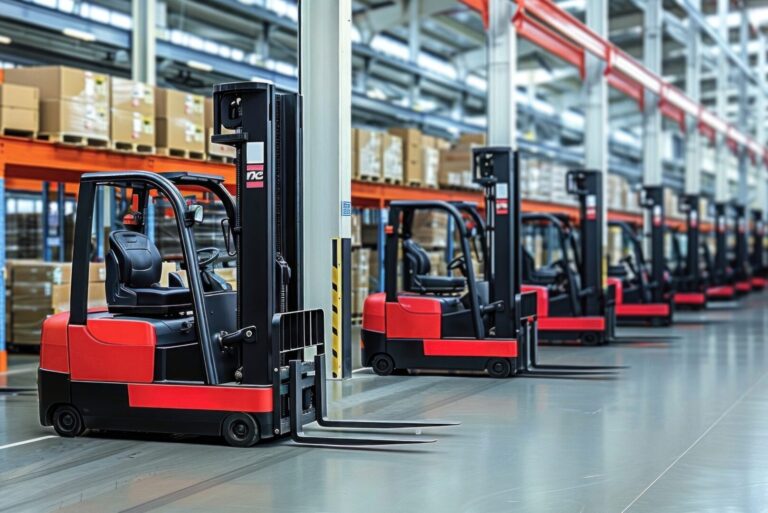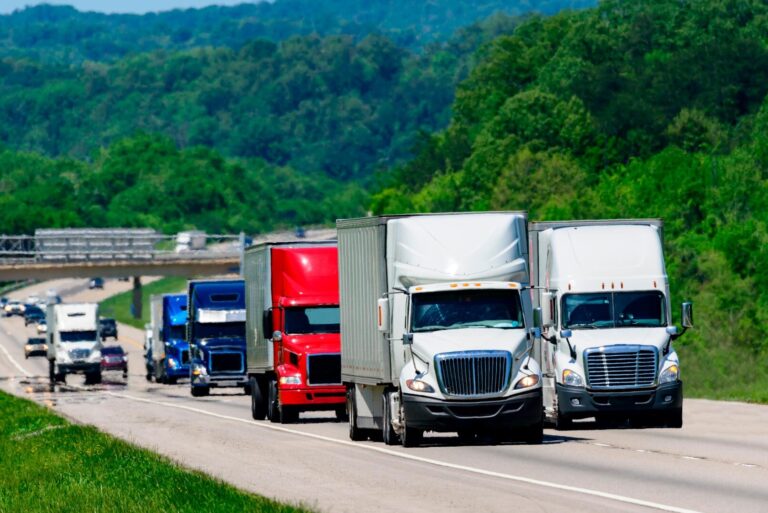How Businesses Can Minimize Costs from California's WAIRE Program
September 10, 2023
The Warehouse Actions and Investments to Reduce Emissions (WAIRE) Program was implemented on May 7, 2021 by the South Coast Air Quality Management District (AQMD) with the goal of reducing greenhouse gas emissions from warehouses across Southern California. Warehouse operators that fail to meet compliance may face steep fines, and meeting compliance through environmental initiatives may be costly.
This article examines how the WAIRE Program impacts warehouse operators and proposes methods of reducing the fines and costs associated with compliance.
What Is the WAIRE Program?

The WAIRE Program uses a point system known as the WAIRE Points Compliance Obligation (WPCO) that represents the number of points that warehouse operators must generate each compliance period to avoid fines, which can be over $350,000 per compliance period. The WPCO calculates a warehouse’s efforts to reduce its annual emissions and takes into account factors such as daily truck trips, weight and type of trucks entering and exiting the warehouse, energy usage, and schedule to phase in zero-emission vehicles (ZEVs).
WPCO is a menu-based point system that gives warehouse operators a variety of compliance options to pick and choose from. This system gives regulated warehouses flexibility in their compliance and allows them to choose the routes that work best for them; however, failure to meet compliance can result in substantial fines, but meeting compliance can result in hefty expenses.
Offsetting the Costs of the WAIRE Program
One of the most prominent and efficient methods of meeting compliance through the WAIRE program is to transition to electric and low-carbon vehicles. California’s Advanced Clean Fleets regulation requires all commercial trucks sold in California to be zero-emission by 2040, and phasing in ZEVs ahead of schedule can be one of the most efficient methods of accumulating WPCO points and avoiding fines.
Electric vehicles, particularly trucks, are more expensive than traditional internal combustion (ICE) vehicles. However, owning and operating electric trucks allows warehouse operators to lower their WAIRE fines, potentially earning long-term savings through avoided fees. EVs also meet the return on investment (ROI) much faster than ICE vehicles, with significant savings from reduced fines, lower fuel costs, and less maintenance.
Warehouse operators can also reduce their WAIRE fines by switching to electric forklifts. While California’s ACT program currently doesn’t mandate the transition to electric off-road vehicles, warehouse operators can accumulate WPCO points by taking the initiative to transition their material handling equipment (MHE). Electric forklifts are growing in popularity, with warehouse operators and fleet owners reducing operation costs through electric forklifts, which require less maintenance and fuel costs. In addition, warehouse operators can earn cash rebates for their EVs, including trucks, forklifts, and other MHE, which can also help offset WAIRE fines.
As California transitions to a cleaner transportation sector, the California Air Resources Board (CARB) is offering rebates to owners of EVs for their reduced emissions. The Low Carbon Fuels Program (LCFS) encourages fleet owners and warehouse operators to transition to electric and low-carbon vehicles ahead of the ACT schedule and enables them to earn credits for every metric ton of carbon offset through the use of EVs. These credits can help substantially offset WAIRE fines through increased revenue as well as help EV owners meet their ROI significantly faster.
Smart Charging Technologies (SCT) can help warehouse operators manage, report, and resell their LCFS credits for the highest value and minimal hassle. SCT has relations with EV manufacturers across California, helping warehouse operators get in touch with manufacturers that will meet their specific needs.
Learn more about how SCT can help you offset WAIRE fines and get you in touch with EV manufacturing partners by contacting us today.
Related Posts









